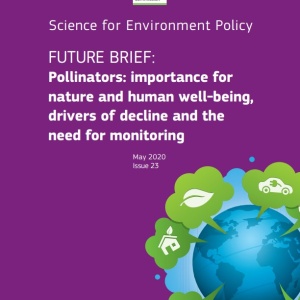
This report from the European Commission’s Science for Environment Policy describes the importance of pollinators (such as bees, flies and moths) for food production and for nature. It identifies several drivers of pollinator loss and sets out methods of monitoring pollinator populations.
According to the report, the main drivers of pollinator decline are land-use change, intensive agricultural management, pesticide use, environmental pollution, invasive species, pathogens and climate change.
New methods of monitoring and identifying pollinators suggested by the report include DNA barcoding (short DNA samples from trapped insects are compared against a central database) and machine learning (algorithms that detect particular species from their appearance, sound or foraging patterns).
Read the full report, Future Brief: Pollinators: importance for nature and human well-being, drivers of decline and the need for monitoring, here (PDF link). See also the Foodsource resource How do the climate and environment directly affect the conditions required for food production?







Post a new comment »